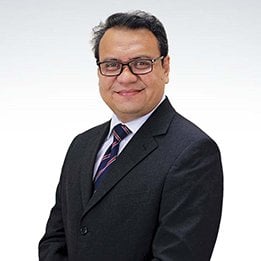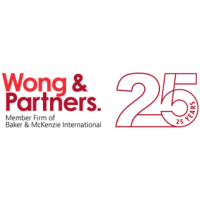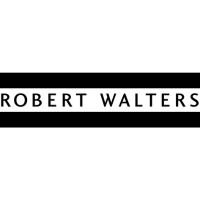

Senior general manager, legal, corporate secretarial and compliance | Malaysia Marine & Heavy Engineering Holdings




Shahrin Albakri
Senior general manager, legal, corporate secretarial and compliance | Malaysia Marine & Heavy Engineering Holdings
What are the most significant cases or transactions that your legal team has recently been involved in?
We recently negotiated the terms and conditions resulting in the award of the Kasawari Carbon Capture and Storage contract from Petronas Carigali, where the company is to undertake the construction of a carbon capture and storage platform, and an 8-legged jacket at the value of approximately RM4.5 billion. The project is a strategic one that underpins Petronas’ commitment of achieving net-zero carbon emissions by 2050, while also supporting the future supply of feedstock to produce liquefied natural gas.
We also managed to set aside in totality a significant arbitration award against the company. This decision is significant as the court is usually very reluctant to interfere in a matter which has been decided by an arbitration panel. If at all the court may partially set aside an award, not in total. Our team’s seamless collaboration with the external counsel managed to formulate cogent arguments resulting in the successful setting aside.
Could you share an example of a time when you came up with an innovation that improved how your legal team works and did not come at a large expense?
While I was in Sime Darby Property, we dispensed with the services of external lawyers and established an in- house “legal firm” to attend to purchasers’ documentation. Having done so, we made significant savings while adding little in term of overheads.
Presently, together with our parent company, MISC, we developed an automated contract generator tool which eases the process of drafting contracts, eliminating the hassle of creating a contract from scratch through the incorporation of boilerplate clauses. The tool is now in use in the whole Group and has proven most beneficial.
What are some of your main tips for dealing with a crisis?
In a crisis, people generally gravitate towards the most composed person in the room. So be calm, collected and always composed no matter the situation. It provides for a good thinking environment and inspires confidence in others.
Take the time to analyse the situation and compartmentalise issues, breaking the problem into several manageable pieces. The resolution of these smaller pieces may be delegated, giving you more thinking space.
How do you see the general counsel role evolving in Malaysia over the next five-ten years?
The general counsel used to be very discipline-specific which then evolved to be more of a business partner to internal clients. I believe the next phase of evolution would make the general counsel even more well-rounded, tackling an increasing number of external stakeholders, and not only from a legal perspective.
How important is choosing to work with external lawyers who align with your company’s values? Are you likely to reconsider what firms you work with based on this?
Extremely important. Loyalty, integrity and professionalism are amongst a few of many values that the Company lives by. These in turn are expected of not only external lawyers but of all the company’s vendors.
Looking forward, what technological advancements do you feel will impact the role of in-house legal teams in the future the most? Which have you found most useful in your legal team?
Even now, there have been technological advancements in the formation of contracts i.e., automated contract generators which I feel makes the job of an in-house legal teams easier. We do have such a tool at our disposal company currently. Having said that I do believe there’s massive room for the usage of other advancements in other areas e.g., contract administration.
In general, what would you like to see change about the external law firms you use?
So far external law firms have been able to accommodate requests put to them in terms of billing and suite of services (the availability of boutique firms is a boon in this respect). That having said I believe there should be an alignment of aspirations and measures in terms of ESG. Not only on reporting, but in terms of making the transition from the traditional environmental-related aspect to a more wholesome ESG perspective.
What are some of the main trends in the industry sector you work in in Malaysia?
The marine and heavy engineering industry in Malaysia leans heavily to the oil and gas sector. Present trends include the shift towards the use of sustainable energy sources, reducing carbon footprints and the like. Most if not all national oil companies are making the transition in a major way and the industry inevitably follows suit.
As we enter the next decade, what skills will a corporate legal team need to succeed in the modern in-house industry?
Ability to use digital tools and legal technology including predictive analytics, AI and machine learning which will increase the speed, efficiency, and completeness with which lawyers can perform routine work. Traits like innovation, creative thinking and adaptability will also prove to be essential if in-house teams are to be effective in performing their roles.
Have you used AI services like ChatGPT in your day-to-day work? If so, how useful do you find it?
Yes, I have dabbled in it. Having said that I do so sparingly since coming across recent news in which ChatGPT made an error in provided a legal precedence in California. I’m still open to using AI but of course with the necessary verifications when required.
How do you suggest in-house lawyers build strong relationships with business partners?
A precursor to a strong relationship is establishing trust. This may be achieved by having consistent engagements, proving one’s credibility and most importantly being reliable with the ability to deliver when it counts.
What are some of the main legislative or regulatory changes that have impacted you?
Legislative and regulations specific to the oil and gas industry has been a constant over the years. However, an area that impacted me has been Bursa Malaysia’s enhanced sustainability disclosures. It provides for a far more detailed disclosure encompassing increased sustainability areas with accompanying indicators.